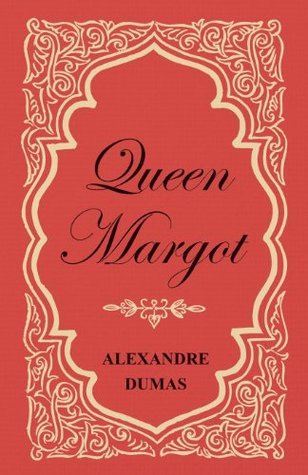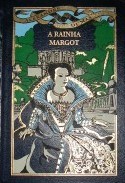
Queen Margot is a historical novel set in Paris in August 1572 during the reign of Charles IX. The story is based on real characters and events. The novel's protagonist is Marguerite de Valois, better known as Margot, daughter of the deceased Henry II and the infamous scheming Catholic power player Catherine de Medici. Catherine decides to make an overture of goodwill by offering up Margot in marriage to prominent Huguenot and King of Navarre, Henri de Bourbon, a marriage that was supposed to cement the hard-fought Peace of Saint-Germain. At the same time, Catherine schemes to bring about the notorious St. Bartholomew's Day Massacre of 1572, assassinating many of the most wealthy and prominent Huguenots who were in the largely-Catholic city of Paris to escort the Protestant prince to his wedding…
Comment: I've decided to start 2019 by reading a classic. I chose this one because it had been in my TBR for a while and because an uncle of mine had it in his library and also a bit because I liked the 1994 movie based on it which featured a very young Isabelle Adjanini.
Since this was not my first book by Alexander Dumas, I sort of knew what I'd get but I still expected a little more in some regards.
This is a story the author wrote based on real events, mainly the st. Bartholomew's massacre in 1572, France, due to a political maneuver for the Christian king to discredit the Huguenots considered protestants. For a more comprehensive explanation, there are historical sites that give an idea of what it was all about.
In this book we follow the lives of several characters right after the wedding of Margaret of Valois, sister to the king of France and Henry of Navarre, the king of the Huguenots, who also wanted to one day become king of France. However, there would always be people who wished Huguenots would never have any influence whatsoever, like Catherine of Medici, the mother of the king of France and widely known for her methods of disposing of enemies...
This classic story can be read in quite a funny manner because one can appreciate the distance of those existences as historical and not be terribly affected by them. The writing is obviously dated and sometimes difficult to engage in which means that, for me, some passages read very lightly despite the dramatic content and often it's not easy to focus enough to follow every action.
The author also included many real life characters and as any student knows, most of the aristocrats (and even other humbler people) would have this desire to name everyone with very similar names. I found this story to be a little confusing because of the huge amount of people called the same and in more action paced scenes it was complicated to distinguish them.
Of course, one could say that paying attention would take care of that but the reality is that the characters are constantly involved in so much intrigue and backstabbing that may times they don't really mean to do something or they said they did and they didn't and vice-versa.
Adding to the fact the language was sometimes too dated to be easily followed, for me the story lost some impact because the politics and the personal development of everyone wasn't exploited as much as I would have liked because too much time was spent on personal intrigues and infidelity and poisoning someone. All these details are things I usually dislike in my entertaining stories.
 What saved this story for me and why I wasn't as bored as I would have been otherwise was the fact that most of the plot centers around Catherine of Medici trying to poison people, especially her son-in-law Henry of Navarre, and constantly failing. I found it very amusing how she was often annoyed and angry over her failed plotting. Of course she also hits some targets here and then and the feel I've got is that people in those times, specifically aristocrats, were too busy plotting instead of living...
What saved this story for me and why I wasn't as bored as I would have been otherwise was the fact that most of the plot centers around Catherine of Medici trying to poison people, especially her son-in-law Henry of Navarre, and constantly failing. I found it very amusing how she was often annoyed and angry over her failed plotting. Of course she also hits some targets here and then and the feel I've got is that people in those times, specifically aristocrats, were too busy plotting instead of living...
Actually, now I think why this book is titled queen Margot, because Margot herself was seriously under developed and acted very often as a silly woman. However, i did liked to see her behave as a responsible person when she realized her husband death wasn't he solution and she tried her best to avoid it.
All things considered, this book is more a lesson in history than a fictional romance. Of romance it has very little despite the parts Dumas probably invented or imagined in some way. I liked having the experience of reading it but it wasn't as entertaining as I imagined.
Grade: 6/10
No comments:
Post a Comment